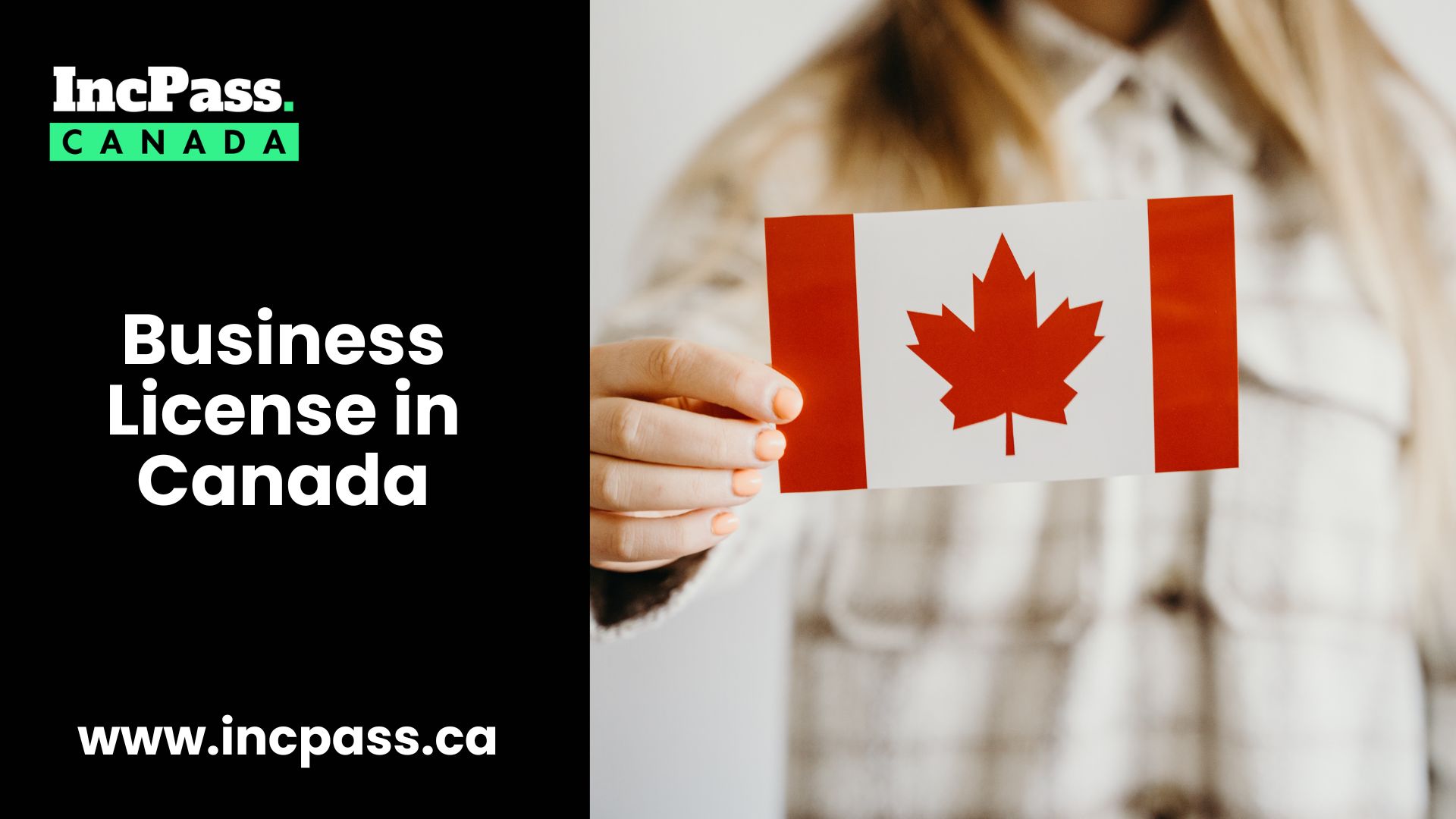As an entrepreneur in Canada, one of the crucial steps you need to take when starting a business is obtaining a business license. A business license serves as a legal permission granted by the government to operate a business within a specific jurisdiction. In Canada, the process of obtaining a business license may vary depending on the province or territory in which you plan to operate. In this article, I will guide you through the process of obtaining a business license in Canada, highlighting its importance and providing valuable tips for a successful application.
Why is a Business License Necessary in Canada?
Whenever we get into the information of acquiring a business license in Canada, it’s crucial to understand why it’s required in the first place. A business license allows the government to control firms and guarantee they operate within legal limitations. It protects consumers by requiring firms to comply with specific standards and laws. A business license also allows the government to keep track of enterprises operating within its jurisdiction, which helps the country’s overall economic development. Obtaining a business license demonstrates your dedication to running a genuine and trustworthy firm in Canada.
Different Types of Business Licenses in Canada
The different types of business licenses in Canada includes
- General Business License: This is the most common type of business license, required for most businesses in Canada. It covers a wide range of industries and activities.
- Professional License: If your business involves providing professional services such as accounting, law, or healthcare, you may need a professional license in addition to a general business license. This ensures that professionals meet certain qualifications and standards.
- Specialized Licenses: Certain industries, such as food services, transportation, or construction, may have specific licenses and permits that are required to operate legally. These licenses often have additional regulations and inspections.
By understanding the different types of business licenses, you can determine the specific license(s) you need for your business.
How to Determine the Specific Business License You Need?
It might be difficult to determine the particular business license you require, especially in light of the variations in regulations between states and territories. Nonetheless, there are tools at your disposal to guide you through this procedure. Speaking with the relevant governmental organizations or municipal authorities in charge of granting business licenses is the first step. They can give you comprehensive details on the particular permits needed for your kind of business and area. Online resources like official websites and trade groups can also offer helpful advice and tools to help you identify the precise business license you want.
After determining which licenses are pertinent to your company, it is important to go over the application requirements and make sure you fulfill all the requirements.
How to Get a Business License in Canada?
The following steps you need to follow to get a business license in Canada are:
- Research: Gather all the necessary information about the application process, required documents, and fees. This can be done by visiting the appropriate government websites or contacting local authorities.
- Complete the Application: Fill out the application form accurately and provide all the required information. Be sure to double-check for any missing or incomplete sections before submitting.
- Gather Supporting Documents: Prepare all the supporting documents required for your application, such as identification documents, business plans, financial statements, or certifications. Make sure to organize them properly to ensure a smooth review process.
- Pay the Fees: Most business license applications require a fee. Ensure you have the necessary funds to cover the fees and make the payment as instructed by the relevant authorities.
- Submit the Application: Once you have completed the application and gathered all the necessary documents, submit them to the appropriate government agency or local authority as per the instructions provided.
- Follow Up: After submitting your application, it is essential to follow up with the authorities to ensure your application is being processed. This allows you to address any potential issues or provide additional information promptly.
Tips for a Successful Business License Application
Applying for a business license can be a complex and time-consuming process. To ensure a smooth application experience, consider the following tips:
- Research and Preparation: Take the time to thoroughly research the requirements and regulations specific to your business type and location. Prepare all the necessary documents and information in advance to avoid delays or missing information.
- Attention to Detail: Pay close attention to detail when completing the application form and providing supporting documents. Ensure all information is accurate and up-to-date to avoid any potential issues or delays during the review process.
- Seek Professional Assistance: If you find the application process overwhelming or confusing, consider seeking professional assistance. Lawyers, accountants, or business consultants with experience in licensing can provide valuable guidance and increase the likelihood of a successful application.
- Plan Ahead: Start the application process well in advance to allow for any unexpected delays or additional requirements. Rushing the process may result in mistakes or missing information, which can lead to application rejections.
- Maintain Open Communication: Throughout the application process, maintain open communication with the government agency or local authority. Promptly respond to any requests for additional information or clarification to ensure a smooth and efficient review process.
By following these tips and being proactive throughout the application process, you can increase your chances of a successful business license application in Canada.
Common Mistakes to Avoid When Applying for a Business License
While applying for a business license, it is important to be aware of common mistakes that can lead to delays or rejections. By avoiding these mistakes, you can ensure a smoother application process:
- Incomplete or Inaccurate Information: Providing incomplete or inaccurate information can result in delays or rejections. Double-check all forms and documents to ensure accuracy and completeness.
- Missing Deadlines: Missing application deadlines can lead to unnecessary delays or even the need to restart the application process. Be mindful of all deadlines and submit your application well before the due date.
- Ignoring Regulations: Failing to comply with specific regulations or requirements for your industry can result in application rejections. Take the time to familiarize yourself with all the necessary regulations and ensure your business meets the required standards.
- Neglecting Supporting Documents: Providing insufficient or missing supporting documents can lead to delays or rejections. Organize all the required documents properly and ensure they are included with your application.
- Lack of Follow-Up: Failing to follow up on your application can result in unnecessary delays. Stay in touch with the authorities to ensure your application is progressing as expected and address any issues promptly.
By avoiding these common mistakes, you can save time and increase the chances of a successful business license application.
Costs and Fees Associated with Obtaining a Business License in Canada
Obtaining a business license in Canada comes with certain costs and fees. The exact amount you’ll need to pay will depend on the type of license and the jurisdiction in which you plan to operate. It is essential to budget for these costs to avoid any financial surprises. Some common fees associated with obtaining a business license in Canada include:
- Application Fee: Most business license applications require an application fee. This fee covers the administrative costs associated with processing your application and can vary depending on the province or territory.
- Annual Renewal Fee: In addition to the initial application fee, many business licenses require an annual renewal fee. This fee ensures the ongoing maintenance and monitoring of your business license.
- Additional Fees: Depending on your business type, there may be additional fees for inspections, permits, or specialized licenses. These fees are specific to certain industries and are designed to cover the costs associated with additional regulatory requirements.
It’s important to research and budget for these costs when planning to obtain a business license in Canada. By being financially prepared, you can ensure a smoother application process and avoid any unexpected financial burdens.
Renewing and Maintaining Your Business License
Obtaining a business license is not a one-time process. In Canada, most business licenses require annual renewals to ensure compliance with regulations and ongoing monitoring. It is crucial to stay organized and keep track of renewal dates to avoid any lapses in your license.
To renew your business license, you will generally need to follow a similar process to the initial application, including submitting the necessary documents and paying the renewal fee. It is important to start the renewal process well in advance to allow for any unexpected delays or additional requirements.
Additionally, it is essential to maintain compliance with all regulations and requirements associated with your business license. This includes keeping accurate records, adhering to any inspections or reporting obligations, and promptly addressing any changes or updates to your business structure.
By ensuring proper renewal and maintenance of your business license, you can continue to operate your business legally and avoid any penalties or fines.
Final Thoughts
Obtaining a business license is a crucial step for any entrepreneur in Canada. It not only allows you to legally operate your business but also demonstrates your commitment to operating within the established regulations and standards. By following the steps outlined in this article, conducting thorough research, and avoiding common mistakes, you can increase your chances of a successful business license application.
Remember, compliance with business license regulations is an ongoing process. Stay informed about any changes or updates to the regulations in your industry and maintain open communication with the relevant authorities. By doing so, you can ensure the long-term success and sustainability of your business in Canada.
CTA: If you need assistance with your business license application in Canada, consider utilizing the services of IncPass Canada. They provide expert guidance and support to entrepreneurs throughout the licensing process. Visit their website for more information and to get started on your business license journey.
Frequently Asked Questions
Can you run a business in Canada without registering it?
Yes, you can operate a business without formal registration if you run it as a sole proprietorship using your own name, and if your province or territory doesn’t mandate registration. However, note that even if registration isn’t required, you may still need specific licenses depending on your location and industry.
Are business licenses necessary for online sales in Canada?
The requirements for online businesses are akin to those for physical establishments. Whether you operate online or offline, your need for licenses hinges on factors such as your business structure, location, and industry.
Do self-employed individuals need business licenses?
If you conduct business under your legal name, formal registration may not be obligatory. Nevertheless, your licensing obligations will vary based on factors like the nature of your business and its geographical scope.








